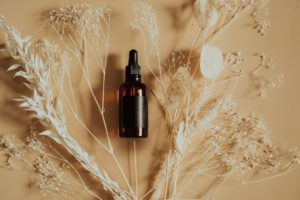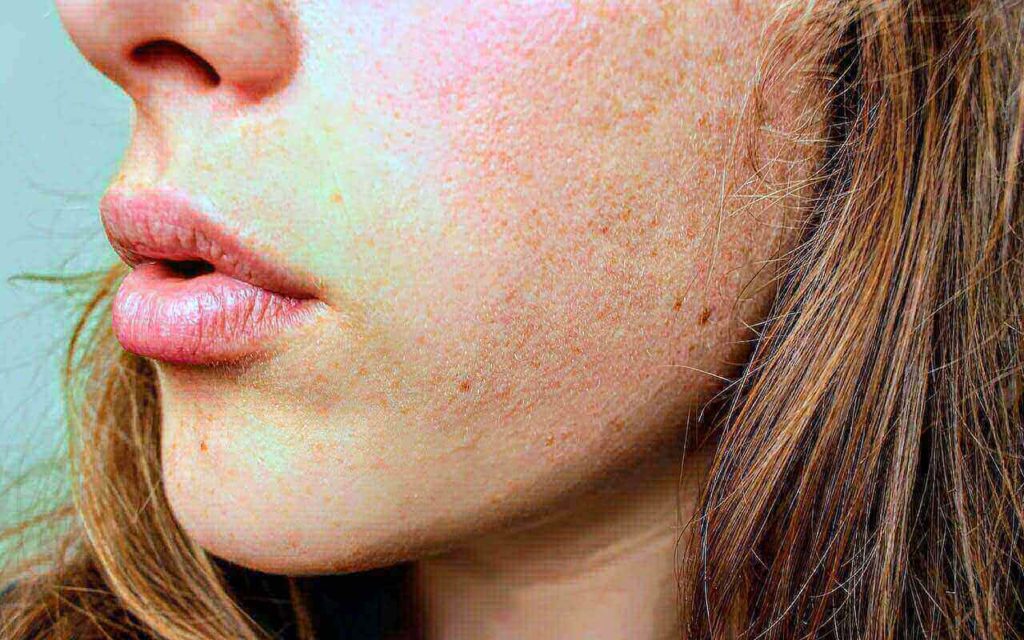The internet is a ginormous field of information that swirls around countless topics and as you dilly-dally across this field you come across heated discussions about various skincare techniques and products. Well, getting lost in this field is a common occurrence.
If you’ve also plucked the fruit of something called hyaluronic acid from one of these think trees then you must be wondering if it does what it promises. A lot of skincare experts have deemed it to be the miracle worker for dry skin.
However, before trusting any of these claims blindly, you must do your research. So, worry not because we’re going to debunk if hyaluronic acid for dry skin is the holy grail! Let’s unravel the truth about hyaluronic acid.
What is Hyaluronic Acid?
Why don’t we start by breaking down what Hyaluronic Acid is? Hyaluronic acid, also known as “HA,” is a natural substance found in our bodies. It’s a non-sulphated glycosaminoglycan which sounds complex but it is quite easy to understand. Simply put, it plays a crucial role in maintaining the skin’s moisture. Hyaluronic acid can retain water – a lot of it. This remarkable capacity is what makes it the star ingredient for those with dry skin.
Hyaluronic Acid Benefits for Dry Skin-
Dry skin brings with it a lot of discomfort in the form of flakiness, redness, itching, roughness, etc. It could be due to environmental factors, lifestyle choices, or genetics. Whatever the reason, the struggle is real. How to win this battle? Hyaluronic acid is the weapon you need to pick! Let’s get into the “how” of the question.

1. Intense Hydration:
By now, it should be clear that hyaluronic acid is the winner of the hydration game. It has the distinct ability to penetrate the skin and bind water molecules to provide deep hydration. This results in a supple and radiant skin. This is why you should cast your vote for hyaluronic acid for dry skin!
2. Lightweight Texture:
A lot of products on the skincare shelf tend to be greasy on the canvas of your face. But that’s not the case with hyaluronic acid as it has a lightweight texture that gets quickly absorbed. And it does not clog pores! If you want to add a moisturizer to your skincare routine that doesn’t feel heavy on the skin then this is a wonderful choice.
3. Improved Skin Texture:
It is to be noted that consistency is the #1 rule when it comes to achieving radiant and healthy skin. Hyaluronic acid can help repair your skin barrier over time. Its hydration-boosting properties can minimize the visibility of fine lines and wrinkles.
Hyaluronic Acid Side-Effects and Usage
Well, we can’t provide you with the half-baked truth. There are several factors you need to keep in mind to get the most out of hyaluronic acid. It can end up worsening your existing skin conditions if used incorrectly. So, yes to hyaluronic acid for dry skin but with caution! Make a note of these factors:
1. Humidity Matters:
Hyaluronic acid is popular for drawing in moisture from the environment which means that it works best to its abilities in humid conditions. It may not be as effective in dry conditions as it could result in dehydrating your skin instead.
2. Layering is Key:
Now, it is essential to invite hyaluronic acid into your skincare routine with all the right preparations. Only then can you make the most of it! To lock in the moisture apply it on damp skin and then follow it with a moisturizer.
3. Not a Standalone Solution:
Hyaluronic acid can be life-changing for dry skin but only when it is coupled with a proper skincare routine. If you want to maximize its benefits then use a gentle cleanser, never forget your SPF, and maintain a well-balanced diet.

4. Overuse is a no-no:
Moderation is the key, here. Hyaluronic acid is safe for all skin types. However, pay attention to the concentration of hyaluronic acid in the product. Using a high concentration of hyaluronic acid can intensify dryness leading to discomfort.
Conclusion: The Verdict on Hyaluronic Acid for Dry Skin
What’s the verdict? Is hyaluronic acid for dry skin a holy grail? We’re tip-toeing around a ‘yes’. Hyaluronic acid skin benefits can be many for your skincare routine but it is important to understand that hyaluronic acid might not be a holy grail for everyone. Our skin is one of a kind and its treatment should be too. What works for others might not work for you and that’s okay!
Skincare is a lot of trial and error and that’s the exciting aspect of it. Several factors contribute to the effectiveness of hyaluronic acid such as climatic conditions, skin type, etc. So with these conditions in mind, the victory is surely yours!
You might also want to read- Niacinamide Vs Hyaluronic Acid: Differences, Benefits & Usage.
Hyaluronic Acid for Dry Skin FAQ-
How should I incorporate hyaluronic acid into my skincare routine for dry skin?
You should apply hyaluronic acid to damp skin and follow it with a moisturizer to seal in the hydration. It's typically used in the serum or essence step of your routine.
What products contain hyaluronic acid, and how do I choose the right one for my skin?
Hyaluronic acid can be found in serums, moisturizers, and even some cleansers. When choosing a product, look for one with the right concentration and other beneficial ingredients that match your specific skin needs.
Can hyaluronic acid be used with other skincare ingredients, such as retinol or vitamin C?
Hyaluronic acid generally pairs well with other skincare ingredients. It can be used in conjunction with retinol, vitamin C, or other active ingredients, as it enhances their absorption and provides hydration.


Pingback: Niacinamide Vs Hyaluronic Acid: Differences, Benefits & Usage - Wild Oak Skincare
Pingback: 7 Worst Things You Should Never Put on Your Face - Wild Oak Skincare
Pingback: Are Silicones Good for Skincare? Truth About Silicone in Skincare - Wild Oak Skincare
Pingback: Understanding Retinol Vs Retinoid: Benefits and Differences
Pingback: Why is Collagen Used in Skincare? Discover Benefits and Usage - Wild Oak Skincare